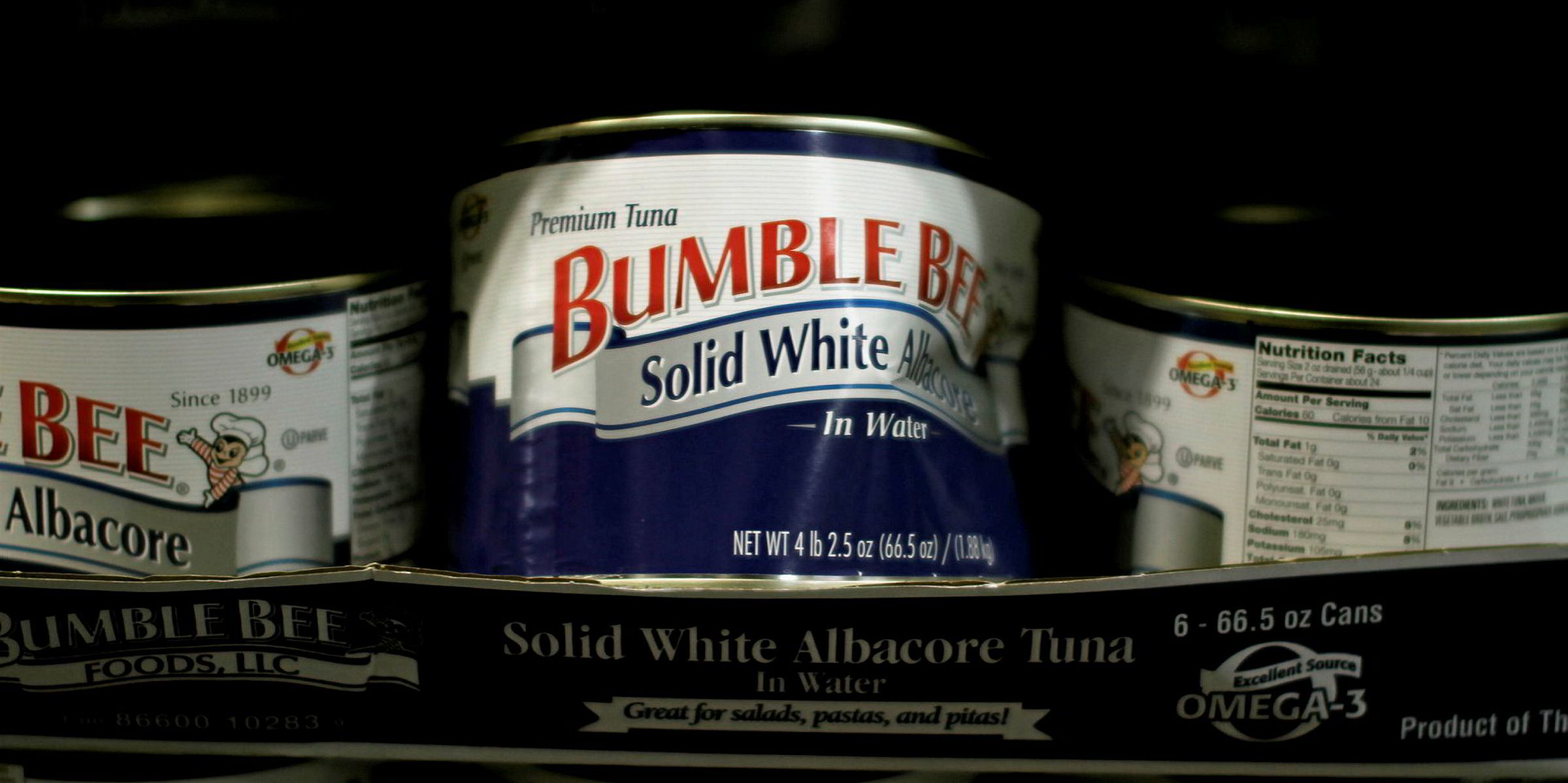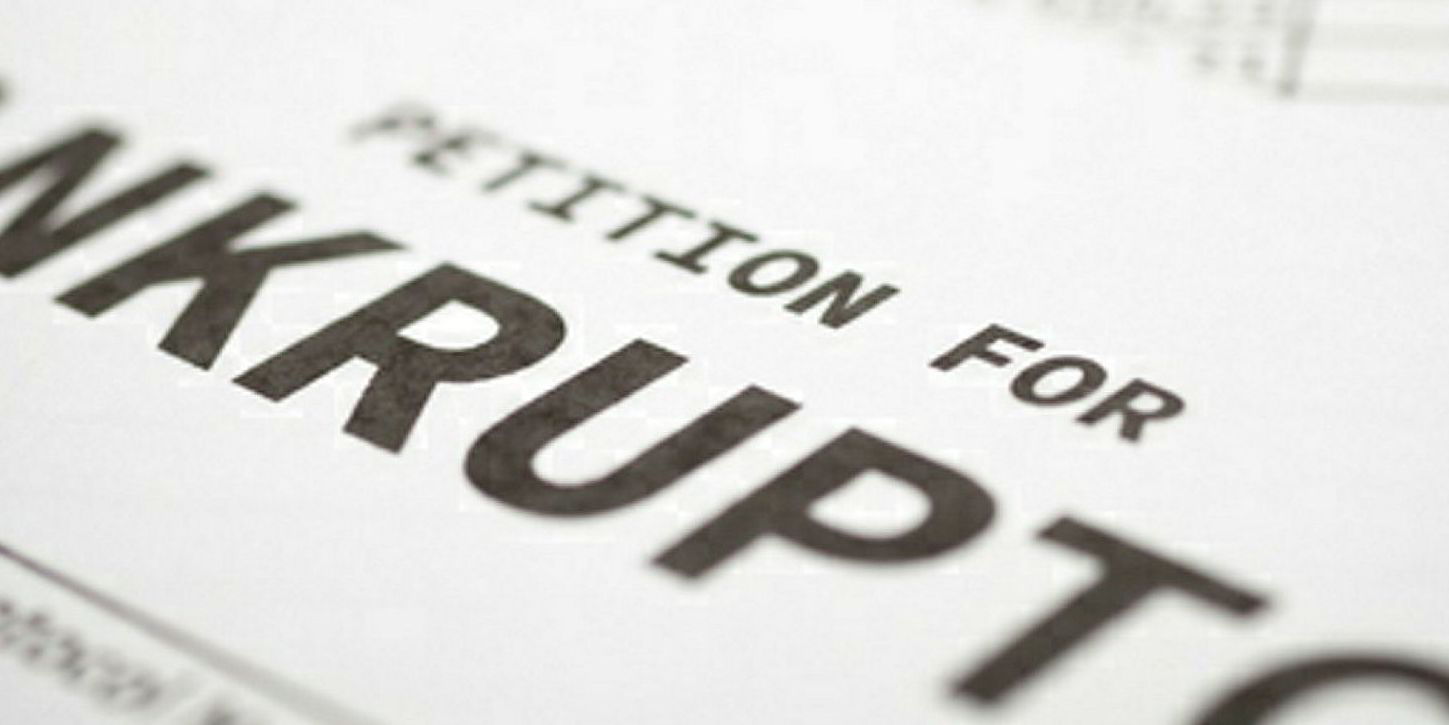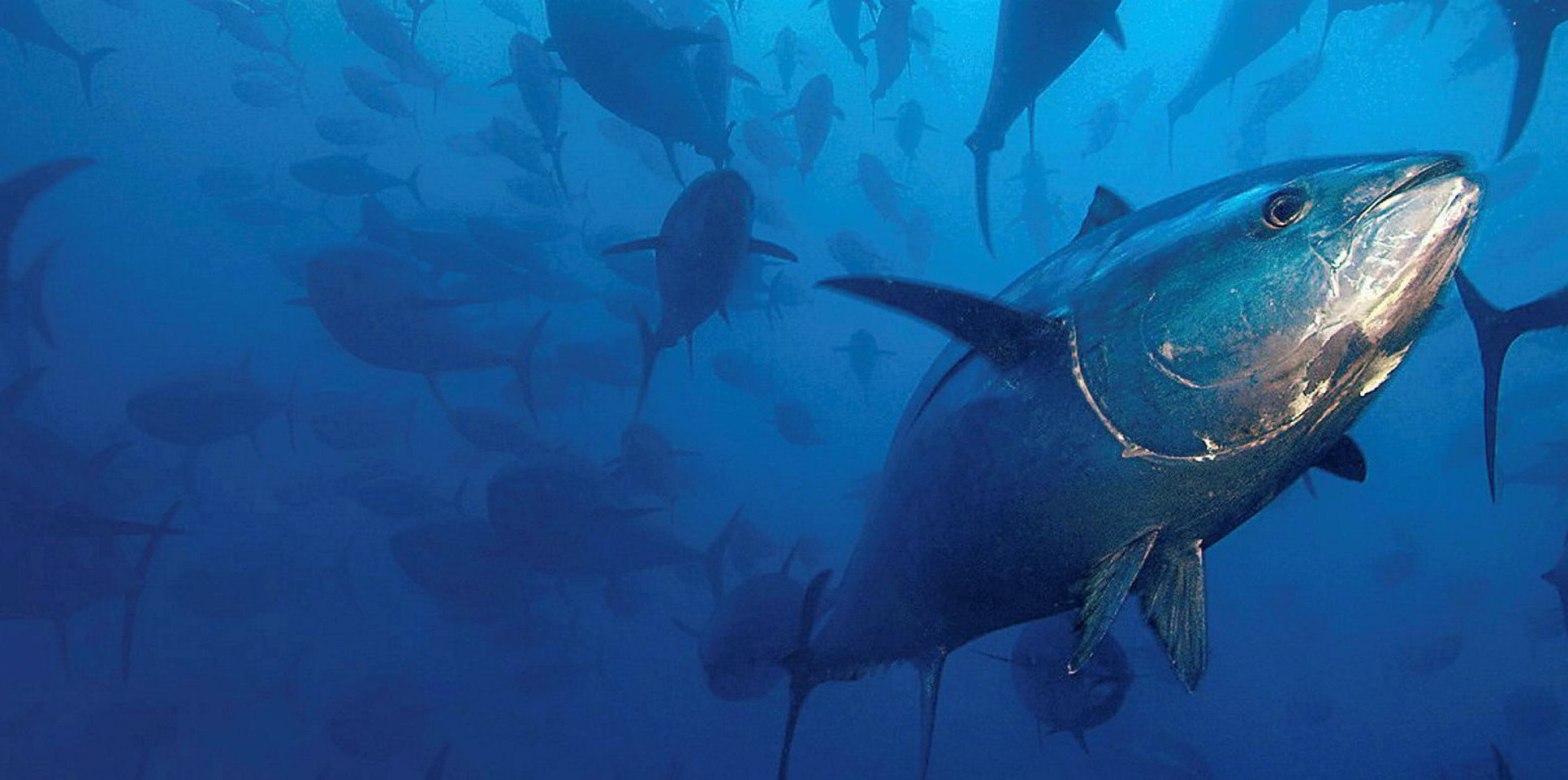Former Bumble Bee CEO Chris Lischewski was found guilty of colluding to fix prices by a jury in a US District Court Dec. 3, according to Law360, which was in the courtroom reporting on the trial.
The jury found Lischewski guilty on a felony charge of violating the Sherman Act, Law360 reported.
Lischewski is facing 10 years in prison and up to $1 million (€1.2 million) in fines. A sentence will be rendered at an upcoming court date.
The trial has featured a "who's who" of marquee tuna industry names, both past and present, called as witnesses.
The Department of Justice (DOJ) alleged Lischewski was the mastermind behind fixing canned tuna prices with co-conspirators from Starkist and Thai Union's Chicken of the Sea "beginning in or about November 2010 and continuing until in or about December 2013."
Tuesday, Dec. 3
'We must go on'
--
Tuesday, Dec. 3
NFI expresses 'disappointment'
Lischewski served as chair of NFI, the leading seafood trade group in the United States, throughout 2013 and was an active member of the organization prior to his indictment in 2018.
--
Tuesday, Dec. 3
Bumble Bee, FCF distance themselves
Bumble Bee Foods was coy in its reaction to the news that former CEO Chris Lischewski was found guilty of participating in a conspiracy to fix prices of canned tuna sold in the United States.
The company sent a statement that did not directly address the verdict, but instead repeated the exact announcement it made following last month's announcement that the company had filed for Chapter 11 bankruptcy in a Delaware court.
--
Tuesday, Dec. 3
Nice glass of white, anyone?
As a jury deliberated his role as ringleader of a vast conspiracy to fix the price of canned tuna, Bumble Bee President and CEO Chris Lischewski did what we all do to kill time: took to social media.
--
Tuesday, Dec. 3
Chris Lischewski found guilty
--
Monday, Dec. 2
StarKist tries to wriggle out of class action
In the wake of Bumble Bee's recent filing for bankruptcy, canned tuna rival Starkist made a move to strengthen an earlier appeal against the tuna giant's ongoing class certification suit.
A letter filed by Starkist on Nov. 26 to the US Court of Appeals cites that the bankruptcy filing of Bumble Bee "confirms" that the class action certification has led to "financial ruin" for one of the three parties appealing.
--
Monday, Dec. 2
Who Bumble Bee owes
Here's an extended list of Bumble Bee's creditors. Amazon, Aldi, Kroger and dozens of marquee names are among the more than 70-page list.
--
Monday, Dec. 2
Arguments close
The end is near for former Bumble Bee CEO Chris Lischewski as both defense and prosecution rested their cases in front of a US District Court jury in San Francisco, California.
US Department of Justice prosecutor Manish Kumar told jurors on Monday not to be swayed by Lischewski attorneys' claims that the executive was ignorant of the price-fixing scheme, and reminded them of the amount of money the companies were able to bring in as a result of their actions.
“Even though their scheme only stole a few cents at a time, those numbers added up and they added up fast,” Kumar said, according to Bloomberg.
The DOJ argued that Lischewski acted under pressure from parent group Lion Capital, which demanded the executive deliver $140 million (€126 million) in earnings to justify the price for acquiring the canned seafood giant, Kumar argued.
Monday, Nov. 25
Lischewski changes his tune
Former Bumble Bee CEO Chris Lischewski admitted to receiving non-public information from competitors through his employees in his testimony.
Previously, Lischewski testified he had no knowledge of price-fixing among the companies involved. However, the new testimony included an admission that he may have asked employees to gather details from Bumble Bee competitors.
---
Friday, Nov. 22
Lischewski denies any involvement, DOJ builds 'powerful' case
Lischewski testified in front of a California federal jury that he had no knowledge or involvement in a price-fixing scandal that occurred between former employees of Bumble Bee, Starkist and COSI sometime between 2010 and 2013.
Lischewski said he didn't order subordinates to engage in price-fixing agreements with competitors while conceding “it’s possible” his subordinates got pricing information from them.
Attorneys Robert Bell and Philip Giordano, who are both antitrust partners at Hughes Hubbard, representing major clients in criminal antitrust litigation, told IntraFish it will be difficult for Lishcewski to dispute his involvement in price-fixing, given the DOJ has already obtained guilty pleas from several executives close to him.
---
Wednesday, Nov. 20
Ex-Chicken of the Sea exec admits to price-fixing scheme with Lischewski
Notable testimony confirming Lischewski's role in price fixing has come from former COSI CEO and President Shue Wing Chan, who told a California jury outright he entered into a price-fixing agreement with Lischewski.
COSI says the fact it blew the whistle in the DOJ investigtaion into price fixing in the US tuna industry protects the company from suffering the same fate as fellow producer Bumble Bee.
---
Friday, Nov. 15
Rumors spread of Bumble Bee bankruptcy amidst hearings
Amdist the heated trial proceedings. the Wall Street Journal broke the news of Bumble Bee's plans to place itself for sale.
The Journal, citing people familiar with the matter, said legal costs stemming from the company's tuna price-fixing and class-action lawsuits were behind the company's financial woes.
Bloomberg first reported the bankruptcy rumors in August, noting Lion hired turnaround firm AlixPartners LLP in July to help the group recover from its mounting losses.
Bumble Bee confirmed around a week later it filed for bankruptcy in order to enter an "asset purchase agreement" with Taiwan-based FCF Co Ltd, which has agreed to acquire the company’s assets for approximately $925 million (€835.5 million).
---
Wednesday, Nov. 13
Ex-Starkist witness in Lischewski trial admits lying to the FBI
Steve Hodge, StarKist's former senior vice president of sales and trade marketing, told a California jury Wednesday he lied to federal investigators at the Justice Department and the FBI because he "was scared and unprepared" when they approached him and he didn't understand the consequences of doing so.
---
Tuesday, Nov. 12
Former Starkist VP talks of price-fixing to reduce competition
Starkist's former senior vice president of sales and trade marketing, Steve Hodge, admitted that he took part in the tuna price fixing case, working closely with executives at Bumble Bee and Chicken of the Sea in order to "compress the levels of competition."
According to Hodge's testimony, all three tuna companies lifted prices simultaneously.
---
Monday, Nov. 11
Lischewski's lawyers demand Cameron's schedule
On Nov 11, Lischewski's lawyers filed a motion with the court requesting the DOJ produce information over the past two months "sufficient to show the date and attendees of each such meeting with Mr. Cameron or his attorneys."
The motion was in response to Cameron's testimony before the jury, where he stated he met with the government four or five times with a paralegal being present.
"However, Mr. Cameron could not recall who was present at these meetings, when they occurred, or what specifically was discussed because the last couple of weeks were a 'blur,'" Lischewski's lawyers said.
---
Tuesday, Nov. 5
Tearful former Bumble Bee exec takes the stand
As testimony in the case unfolded Lischewski's defense ripped into a tearful Bumble Bee witness.
Lischewski's defense questioned a tearful Walter Scott Cameron, Bumble Bee's former senior vice president of sales, on Tuesday, probing how strongly the prospect of going to jail factored into evidence he provided the DOJ prior to the criminal trial.
A tearful Cameron acknowledged that getting a reduced sentence and going to jail did factor into his decision to cooperate with the government, according to the news site.
---
Monday, Nov. 4
Witnesses testify about receiving direct instructions from Lischewski
As the tuna price fixing trial got underway an emotional Bumble Bee executive told a San Francisco court that former Bumble Bee CEO Chris Lischewski gave ‘very clear, direct order’ to fix tuna prices.
In its opening statement, DOJ attorneys said the price-fixing scheme "tears at the very fabric of our free market system."
The DOJ has won guilty pleas from several executives and all three of the major companies for taking part in the conspiracy, ordering millions of dollars in fines.
Lischewski’s attorneys opened the trial by telling jurors tuna prices over the alleged period of price-fixing "reflect stiff competition," and that Lischewski was not involved even if a conspiracy did exist.
2004 - 2010. Defendants shared a common canner in American Samoa, Impress, which is allegedly connected to collusive can size reduction.
2004. Groups colluded to increase prices of canned tuna at least twice.
2006. Groups colluded to increase prices of canned tuna at least once. “By 2007, defendants became more practiced and ambitious in their collusive designs," allegedly downsizing their can size while raising prices.
2007: The NFI created the Tuna Council, whose only members were the defendants, allegedly.
2008. Alleged collusion on price increases on canned tuna.
2010: Defendants allegedly colluded and raised net prices on canned tuna. Net prices are the prices disseminated to brokers of shelf stable seafood products, and represent the list price, less promotional allowances offered by defendants to reduce the list price.
November 2011 - June 2013: Senior executives and sales personnel of the StarKist, Bumble Bee and Chicken of the Sea allegedly "exchanged emails and had telephone conversations about discounting and promotional practices and terms for the sale of canned tuna to customers." They also allegedly "assured each other that they would not compete regarding the pricing and sale of canned tuna sold to customers."
December 2011 and January 2012: Senior executives and sales personnel of defendants allegedly had telephone conversations "about coordinating and announcing a price increase for a number of products in the second quarter of 2012." Price increases were allegedly "virtually identical" and "other products also increased by identical percentages."
2011 - 2013: StarKist, Chicken of the Sea and Bumble Bee allegedly told customers certain factors in the tuna sector made it necessary to increase tuna prices. They allegedly "cited their own predictions about where the tuna market was heading as the basis for a price increase."
2012 - July 2015: Defendants and their co-conspirators allegedly agreed to avoid FAD-free tuna.
July 2015: Published reports revealed US Department of Justice convened a grand jury to investigate potential antitrust violations by companies in the market for the production, pricing and/or sale of packaged seafood, including canned tuna.




